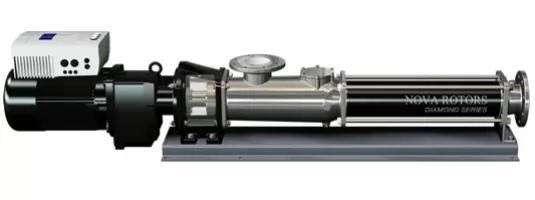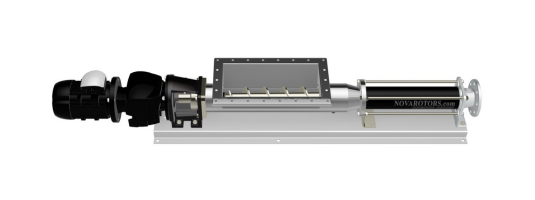Production of Essential Oils from Onions


Introduction
Efficiency and Reliability in the Sugar Industry
In sugar production, whether from sugar cane or sugar beet, our progressive cavity pumps ensure precise and gentle transfer of high-viscosity fluids like molasses and syrup. Thanks to their ability to handle dense and viscous liquids without altering their properties, they are the ideal solution for juice extraction, evaporation, crystallization, and purification stages.
Main applications in the sugar sector:
Extraction and transfer of molasses after centrifugation
Syrup recirculation in evaporation systems
Accurate dosing into storage tanks and mixers
Transport of viscous fluids or ethanol and alcohol, even at high temperatures
Our pumps are especially suitable for:
Juice extraction from sugar cane and sugar beet
Molasses and syrup handling in crystallization processes
Dosing and transfer of viscous liquids during treatment and storage phases
Constructed in AISI 304 stainless steel, our pumps offer high durability and easy cleaning, ensuring compliance with the highest hygiene standards.
Key benefits of our progressive cavity pumps:
Low energy consumption and continuous operation thanks to a constant, pulsation-free flow
Suitable for handling hot and viscous fluids up to 80°C, with viscosities up to 15,000 mPas
Reliable and optimal performance even under demanding operating conditions
Our progressive cavity pumps are the ideal choice to ensure maximum control throughout all stages of sugar production, improving efficiency and optimizing the process.

Efficiency in Pumping High-Viscosity Sugary Fluids: The Role of Progressive Cavity Pumps in Sugar Processing
🏭 Context
A company involved in cane sugar production needed a reliable solution for transferring molasses and sugar syrup during various stages of the production process. Both fluids are highly viscous, sometimes containing solid residues or suspended crystals, and require a gentle, continuous, and robust pumping system.
Challenge
Transfer of molasses (high density, by-product of the centrifugation process)
Pumping of concentrated sugar syrup during and after evaporation
Need for a constant, pulsation-free flow
Resistance to abrasive, sticky, and corrosive fluids
Preserving product integrity (no damage to crystals)
One of the main critical issues was the significant distance between the suction point and the pump, causing cavitation and flow interruptions. The system also had to handle dense fluids at temperatures up to 40/60 °C in another sugar production facility.
✅ Adopted Solution
Progressive cavity pumps (e.g., model XYZ) were installed at various points of the production line:
Extraction and transfer of post-centrifugation molasses
Recirculation of syrup in the evaporation systems
Dosing into storage tanks and mixers
Selected pump features:
AISI 316 stainless steel body
Elastomer stator resistant to sugary fluids
Operation with fluids up to 100,000 mPas
Adjustable flow and self-priming capability
💡 Achieved Results
Steady and controlled flow without pulsations → improved production output
Higher reliability compared to alternative systems (e.g., diaphragm or centrifugal pumps)
Reduced maintenance due to wear and fouling resistance
Product quality preserved: no degradation or foaming
Optimal handling of even high-temperature fluids
📊 Technical Data (example)
| Fluid | Viscosity | Temperature | Flow Rate | Pressure |
|---|---|---|---|---|
| Molasses | 5,000–15,000 mPas | 40–60 °C | 5–54 m³/h | 4 bar |
| Sugar syrup | 2,000–10,000 mPas | 70–80 °C | 3–30 m³/h | 3 bar |
🧩 Conclusion
Progressive cavity pumps proved to be the ideal solution for handling molasses and sugar syrup, ensuring consistent performance, minimal maintenance, and excellent compatibility with challenging fluids. A reliable system for plants requiring continuous operation and high product quality.
Products used



